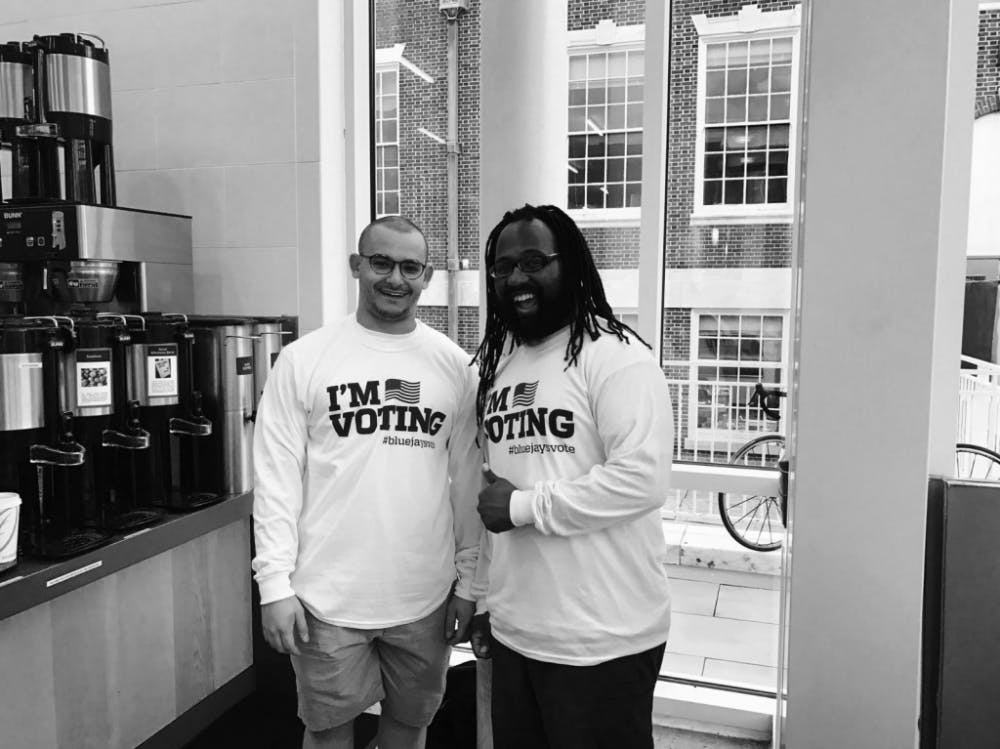Only 38 percent of Americans aged 18 to 24 voted in the 2012 election according to the Campus Vote Project, the least out of all age demographics. In fact, almost 1.7 million Americans between the ages of 18 and 24 were not even registered to vote. The low voter turnout among young adults can be partially attributed to students either being unaware of the requirements of the process or apathy.
This year, the Inter-Asian Council (IAC), the umbrella group for Asian-American and Pacific Islander cultural groups on campus, is partnering with a national organization called Asian and Pacific Islander American Vote (APIAVote) to increase voter turnout on campus.
According to senior Evelyn Ho, one of the co-directors of education and outreach for the IAC, the organization is also collaborating with Hopkins Democrats, Hopkins Republicans and Amnesty International to encourage students to vote.
“At our tabling events, we have Maryland voter registration forms available for people to fill out and leave with us. We’re also handing out flyers so people who don’t have time to stop or want information on how to vote absentee can do that,” Ho said. “There are also so many helpful websites — apiavote.com/register or vote.gov or vote.org — that guide you through the registration and absentee ballot request.”
On election day, there are a few polling places within walking distance for students who are registered to vote in Maryland, including one polling office down in Waverly and another about a block north of the intersection of N. Charles Street and University Parkway.
Other students who are registered to vote in their home state will be voting with an absentee ballot.
“When people think of absentee voting, they usually think it’s for people out of their home state for Early Voting and Election Day,” Ho said. “This is true, but it’s actually more complex than that. For one, if you’re away from your home county, you would have to submit an absentee ballot request. It’s also a way for those in military stationed away from home to vote. Moreover, it provides a way for people who cannot get access to voting locations — whether it be because of lack of transportation of disability.”
Ho further explained that students have the choice to vote in either their home county or in Baltimore City. She said that when deciding where to vote in an election, students have to take into consideration that they are also voting for positions in their local county, like sheriffs, members of state legislatures and judges.
“Many of the underclassmen will be directly affected by the state and local outcomes of this election. They may feel like they should have a say in the next two to four years, so they might register for Baltimore City,” Ho said. “Some might just find that it’s much simpler to vote where they are now instead of requesting an absentee ballot. Others, like me, want their vote to count at home, whether to affect state/local elections or to sway their states electoral outcome of the presidential election.”
According to sophomore Ziwei Chen, another member of IAC who helps out at tabling events, if students choose to vote in Maryland, they will have to had apply by mail. She adds that the form asks for a permanent address, but a dorm address is sufficient. It also asks for a Maryland Driver’s License, but students can instead include a social security number. Chen said that the voting process for voting in a home county is simpler; Students can just register online at vote.gov.
Chen said that she hopes the tabling events that IAC is doing will make a difference in the long run, getting even more people involved in the political process.
“I didn’t expect people to have such strong feelings about the election,” Chen said. “I remember one freshman who had so many questions and kept coming back to our booth. He wasn’t from a swing state, so his vote doesn’t really matter, but it was cool to see someone so excited about the election.”
Ho added that she hopes that she can help highlight the importance of voting and help to alleviate the turnout disparity between younger voters and older voters.
“Young people might not think the election affects them, when in reality the outcome in November is something they’ll have to deal with for the rest of their lives,” Ho said. “College students, young eligible voters, need to register and need to vote. We’re not just voting for the next four years; We’re voting for our future beyond even that.”





